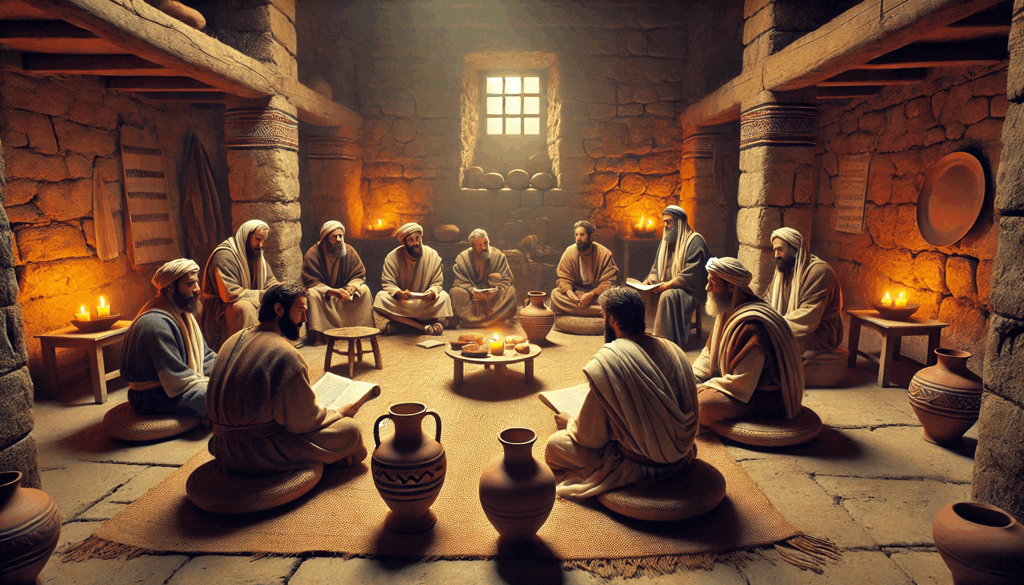In a world where scandals frequently make headlines, especially when they involve religious leaders, it’s more important than ever to revisit what the Bible says about leadership. 1 Timothy 3 provides a blueprint—not just for pastors or deacons, but for anyone aspiring to serve within the church. These aren’t arbitrary checkboxes but meaningful qualities that ensure leaders are trustworthy, balanced, and spiritually mature. This chapter challenges us to rethink what we value in leadership and how we apply those principles today.
Who Is Called to Lead?
The chapter opens with a “trustworthy statement”: “If anyone aspires to be an overseer, he desires noble work.” Leadership in the church isn’t just a job—it’s a sacred calling. Paul highlights that being a church leader is noble, but it’s not for everyone. Not because some aren’t good enough, but because the role requires a unique level of accountability, integrity, and self-awareness.
Overseers (or elders) in this context are not merely administrative heads—they are spiritual guides, shepherds of the flock, and examples to the community. They must be above reproach, faithful in marriage, self-controlled, and respectable. These are qualities that aren’t just for appearances; they shape how leaders serve others and honor God.
Character Over Charisma
One of the strongest themes in 1 Timothy 3 is that character outweighs charisma. Leaders should not be violent, greedy, quarrelsome, or given to excess, especially when it comes to alcohol or material wealth. The emphasis on gentleness and humility reflects a kingdom mindset—power is not for domination but for service.
This is crucial today when so many are drawn to magnetic personalities who may lack depth in character. Paul warns that a leader who is prideful or immature could fall into the same trap as the devil—pride leading to disgrace. Spiritual leadership demands a mature faith built over time, not a flashy stage presence.
The Household Test: Managing the Small Before the Great
Paul makes a powerful analogy—if a man cannot manage his own household, how can he manage God’s church? This doesn’t mean leaders must have perfect families, but they should demonstrate consistent, respectful, and dignified leadership at home. After all, the church is often called the “household of God.” The home serves as a microcosm of a leader’s ability to guide, nurture, and resolve conflict.
In modern terms, this reminds us that leadership starts in private. Your integrity in small matters, your relationships at home, and your everyday decisions speak louder than any sermon.
Why Experience and Stability Matter
New converts are cautioned against stepping into leadership too quickly. While passion is beautiful, wisdom is built through time, testing, and reflection. Paul’s concern is that new believers might become conceited, which can lead to downfall. Experienced leaders are less likely to be swayed by praise or discouraged by criticism—they have roots deep in faith.
This is a practical reminder for today’s churches not to rush people into roles they aren’t spiritually or emotionally prepared for. Leadership is a journey, not a sprint.
The Role of Deacons: Servants Who Lead
Deacons, often seen as servants or assistants to elders, are held to similar standards. They must be dignified, sincere, self-controlled, and faithful. They may not be teaching weekly sermons, but they hold spiritual authority and are often responsible for important ministries—from finance to missions to counseling.
Paul says they must “hold the mystery of the faith with a clear conscience.” That phrase is beautiful—it means they embrace the deep truths of the gospel with understanding and conviction. Whether leading a Bible study or managing church logistics, deacons must be people of unwavering faith and clear moral standing.
Women in Ministry: Standards Apply to All
The text also briefly references the wives of deacons, though some interpretations extend this to women in ministry roles. They too must be worthy of respect, not slanderers, self-controlled, and faithful. The same spiritual maturity is expected regardless of gender or title.
This reinforces a broader truth: while the roles may differ, the call to integrity is universal.
What’s at Stake: The Reputation of the Church
Paul doesn’t just list these qualifications for the sake of it. He ties them to the reputation of the church. When a leader falls, the whole community feels the impact. We’ve all seen headlines where one pastor’s actions tarnish the name of an entire faith. Paul’s message is: avoid even the appearance of disgrace. Live and lead in such a way that no accusation can stick.
Applying These Lessons Today
These leadership standards may feel overwhelming, but they offer direction, not discouragement. They help us:
- Choose Wisely: Whether electing a new pastor or small group leader, these qualities provide a solid checklist for discernment.
- Self-Reflect Honestly: Even if we’re not leaders, we can aspire to these traits. They’re markers of maturity for any believer.
- Support Our Leaders: Ministry is tough. Leaders need our prayers, encouragement, and accountability.
- Recognize Limitations: Not everyone is called to leadership—and that’s okay. Being faithful where you are is what matters most.
Conclusion: Faithful Leaders Reflect a Faithful God
1 Timothy 3 isn’t about elitism—it’s about responsibility. God calls leaders to a higher standard because they represent Him to others. But He also equips those He calls. Whether you’re a pastor, a deacon, or a church member serving behind the scenes, remember that integrity, humility, and consistency matter. The church thrives when its leaders are trustworthy, and trust is built not on perfection, but on faithfulness.
So let’s pray for our leaders. Let’s encourage them. Let’s be the kind of people who make their work a joy, not a burden. And if you are in leadership, remember—you’re not alone. God sees your faithfulness, even when others don’t.

